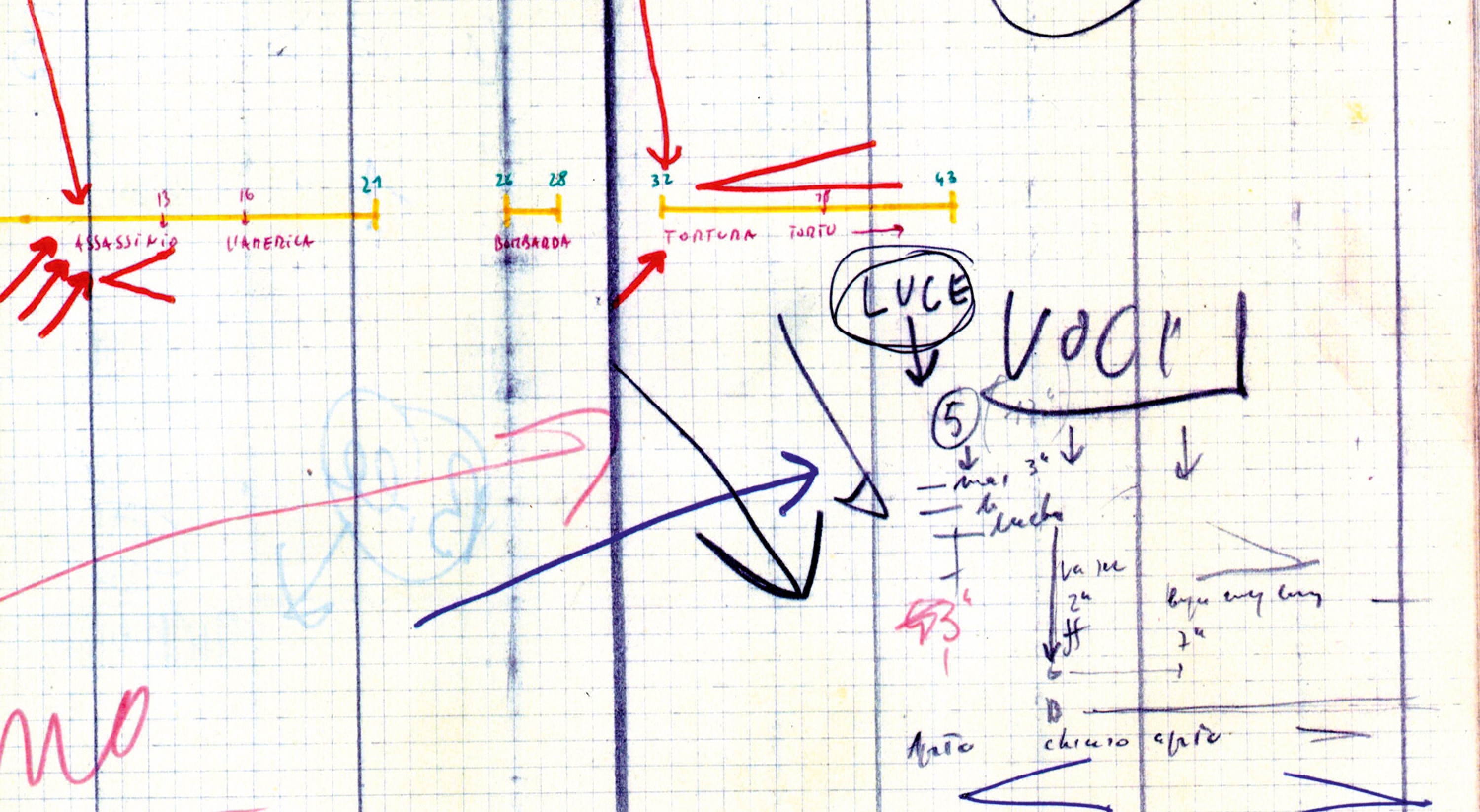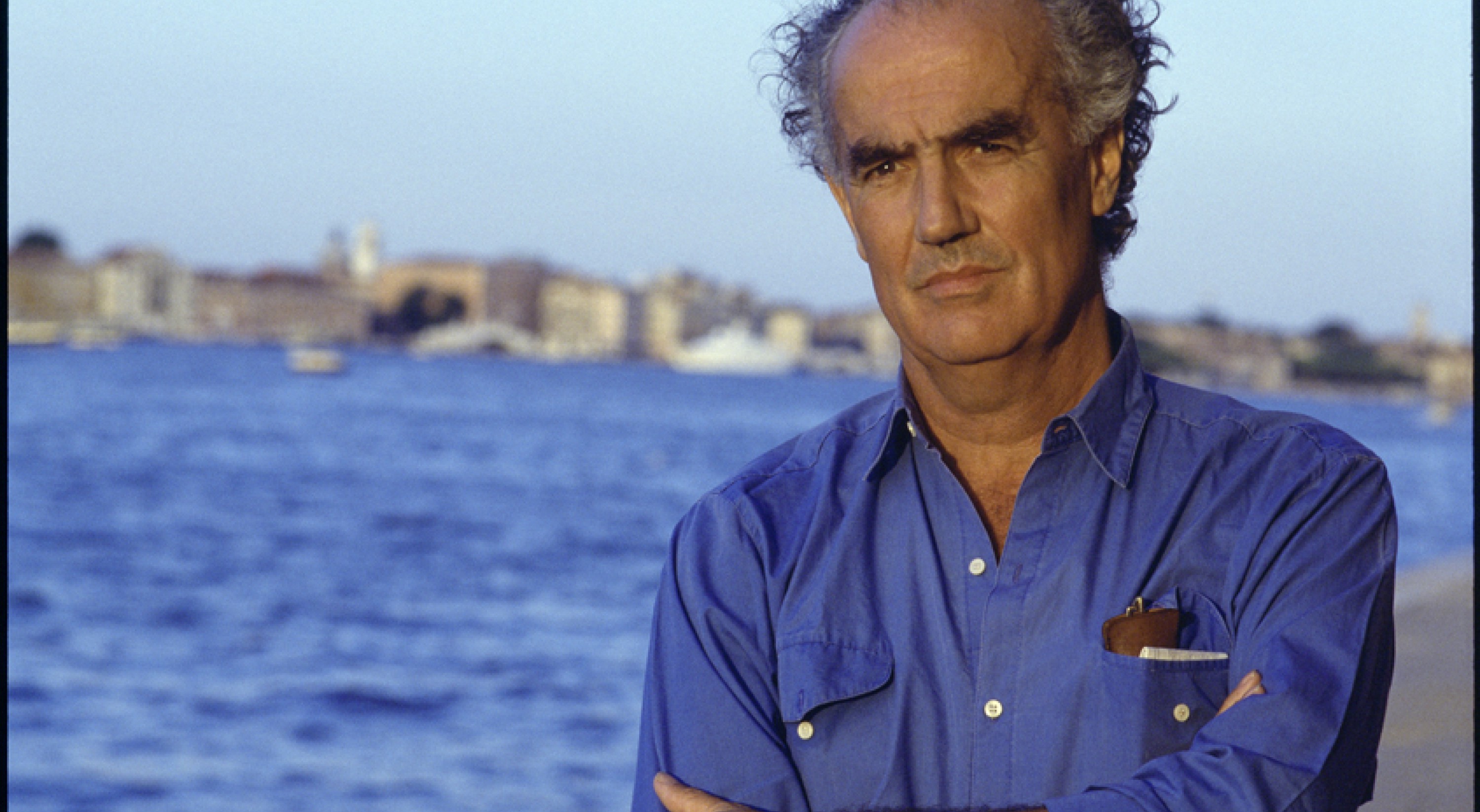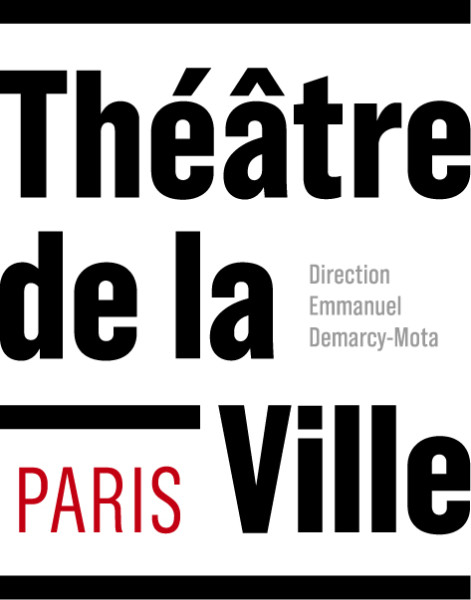Luigi Nono
Ricorda cosa ti hanno fatto in Auschwitz...
novembernov 14
Luigi Nono
Ricorda cosa ti hanno fatto in Auschwitz (tape)
A Floresta é jovem e cheja de vida for soprano, clarinet, three voices (actors), five percussionists (copper sheets) and tape
Maria Chiara Chizzoni, soprano
Antonella Civale, Ilaria Genatiempo, Lorenzo Profita, actors
Parco della Musica Contemporanea Ensemble (PMCE)
Paolo Ravaglia, clarinet
Antonio Caggiano, Antonino Errera, Pietro Pompei, Fulvia Ricevuto, Flavio Tanzi, copper sheets
Massimiliano Farau, actors training
Alvise Vidolin, sound projection
Tonino Battista, music conductor
Pre-concert talk: Laurent Feneyrou and Lionel Esparza will discuss Luigi Nono’s political commitment in the 1960s and 1970s.
After the concert, screening of the film Archipel Luigi Nono (1988, directed by Olivier Mille)
Coproduction: Théâtre de la Ville-Paris and Festival d’Automne à Paris // With the support of Mécénat Musical Société Générale and the Ernst von Siemens Foundation for Music // With Fondazione Musica per Roma, Accademia Nazionale di Santa Cecilia, Accademia Nazionale d’Arte Drammatica Silvio D’Amico, as part of “Suona italiano” // Event featured in the program Tandem culturel Paris-Rome 2014 in partnership with the Institut français.
Milan, in the autumn of 1965: the atmosphere was red. More and more groups of revolutionaries were emerging, and agitation was spreading to factories and universities. Luigi Nono was at the RAI Phonology Studio when the doorman gave him a message: “There are around twenty weird guys at the entrance who say they have to work with you, but we’ve closed the gate and called the police.” After much discussion, the management finally let the “Living Theater” troupe come into the studio where they then recorded a number of versions of “Escalation” (the theory developed by an expert with the US Department of Defense, grading tension between countries from diplomatic crisis to nuclear war).
Then the clarinet and percussion with copper sheets produce sound and dazzling lights ; and the lyrical voices of a soprano and actors testing a broad range of vocal techniques reading news stories. “I wanted to go beyond singing and speaking, to extract maximum expression from the human voice.” That was the beginning of A floresta é jovem e cheja de vida (The Forest is Young and Full of Life), starting as a joint improvisation, always on the move in a quest for new sounds.
The assembled texts covered working class revolts and revolutionary struggles across the world; they speak out against the blind cruelty of domination of every kind, determined to shatter the inertia of habit and thus reach a point of “listening to oneself, within oneself, listening to others, listening within listening.”
Before the performance of A Floresta é jovem e cheja de vida, the electronic work Ricorda cosa ti hanno fatto in Auschwitz (Remember what they did to you at Auschwitz) will be played. Nono wrote the work with reference to the ghettos, the extermination of the Jews and the resistance in Europe. Nono reworked the stage score he had composed the previous year (1965) in response to a request from Erwin Piscator (1893-1966) for the première performance of The Investigation by Peter Weiss (1916-1982) at the Volksbühne in Berlin.
In the same place


